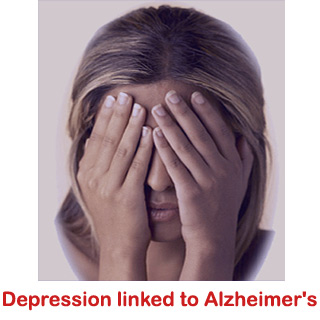
The study analyzed 486 people in the age group from 60 to 90 who had no dementia. Out of these 486 people, 134 had gone through a minimum of one bout of depression, which drove them towards seeking medical recommendation.
These subjects were studied for around six years, during which 33 people developed Alzheimer’s. It was noticed that participants who had gone through depression were 2.5 times more susceptible to develop Alzheimer’s disease as compared to people who never suffered from depression. In addition, people who had an experience of depression before the age of 60 had a higher impending risk of nearly four times to develop Alzheimer’s than those with no depression.
“We don’t know yet whether depression contributes to the development of Alzheimer’s disease or whether another unknown factor causes both depression and dementia.” Adding, “We’ll need to do more studies to understand the relationship between depression and dementia,” stated
Study author Monique M.B. Breteler, MD, PhD, with the Erasmus University Medical Center in Rotterdam, the Netherlands.
While studying the reason behind the link, one theory that evolved was that depression led to the loss of cells in two areas of the brain called the hippocampus and the amygdale, which then contribute to Alzheimer’s disease. All the same, this study found no difference in the size of these two brain areas between people with depression and those who never had depression.
Furthermore, the study also studied if the subjects involved showed any symptoms of depression at the beginning of the study. However participants with depressive symptoms at the beginning of the study were not more likely to develop Alzheimer’s as compared to those with no depression at the start of the study.
The Netherlands Organization for Scientific Research and the Health Research and Development Council supported the study.
Similar conclusions were derived through another study by Rush University in the US, which has been published in Archives of General Psychiatry.
